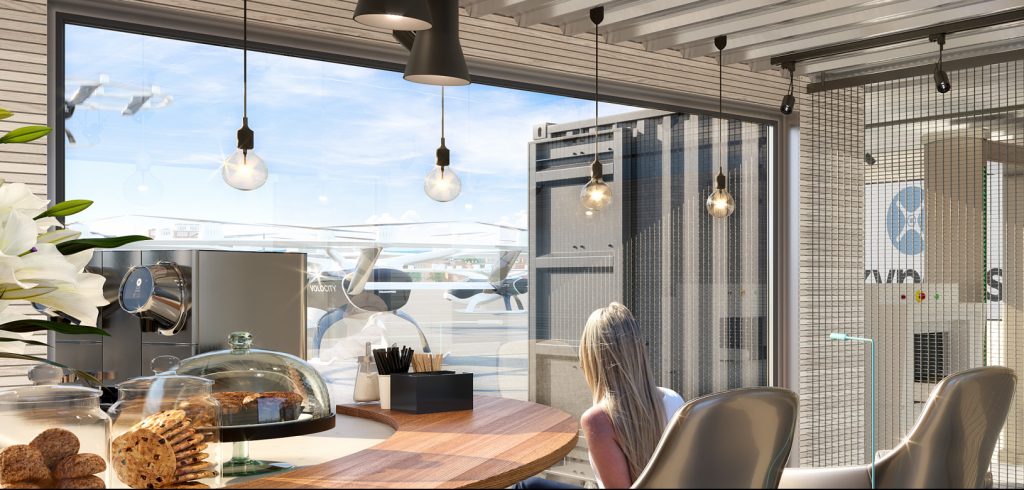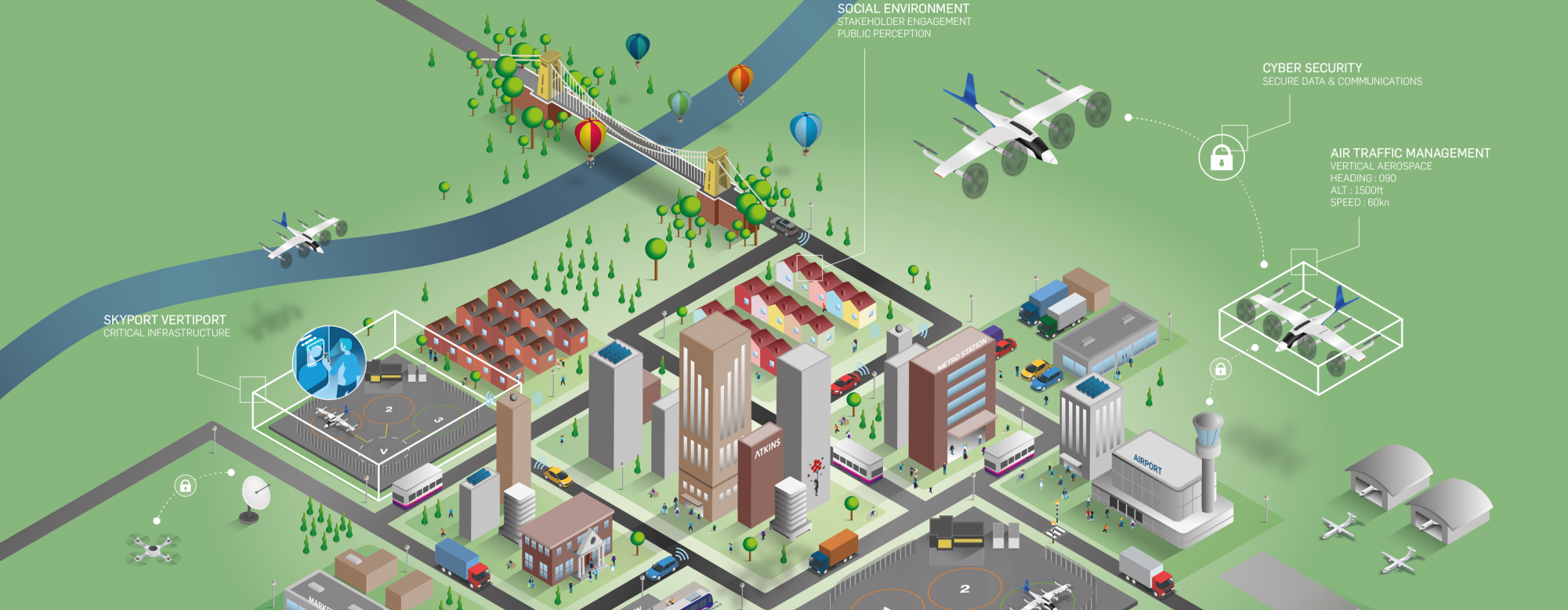A UK-based consortium led by design and engineering consultants Atkins, a member of the SNC-Lavalin group, and involving VTOL specialists Vertical Aerospace, has secured an industrial research grant from the UK government to investigate the feasibility of an air taxi service in the southwest region, as a precursor to conducting demonstrations in a live environment.
The £2.5m (US$3.4m) project has secured partial funding through the government’s Future of Flight Challenge, which was created to find innovative methods of achieving greener flight, finding new ways to travel, increasing mobility, improving connectivity and reducing congestion.
The project is expected to take 18 months and will comprise an assessment of the demand for air taxi services in the southwest; development of use cases for the technology; and an evaluation of the integration and impact on the wider transportation network, including the region’s airports. These activities, says Atkins, are intended to culminate in a series of full-system demonstrations in live airspace across the region.
James Richmond, advanced air mobility lead at Atkins, commented, “As we look to the future of travel, it’s now more important than ever that we begin exploring more sustainable methods of transport within our increasingly populated cities. Bringing together the experience and expertise from across the consortium, we’re excited to begin developing a fully integrated system concept, using the latest digital innovations. This an important and tangible step towards making Advanced Air Mobility a reality, and by demonstrating that we can provide a case for air taxis, we could begin trialling these services as early as 2023.”
Vertical Aerospace, a Bristol-based electric aircraft manufacturer, will explore vehicle integration, using its eVTOL air taxi. Meanwhile, Skyports, an infrastructure provider for the emerging advanced air mobility (AAM) industry, will be responsible for design, development, operation and airport integration of the physical infrastructure to enable safe and efficient air taxi services.
In addition to the grant partners, Bristol Airport will act as the principal support airport. Subsequent input will be provided by other airports in the region to ensure the concept’s transferability across different infrastructure.
Simon Earles, sustainability and corporate affairs director at Bristol Airport, remarked, “We have set the airport an ambitious target to be carbon net zero by 2050. Innovative new approaches to travel, like the air taxi service, are critical to making this a reality and also support the wider decarbonization agenda in the southwest, and we are proud to act as a testbed for this exciting project.”



